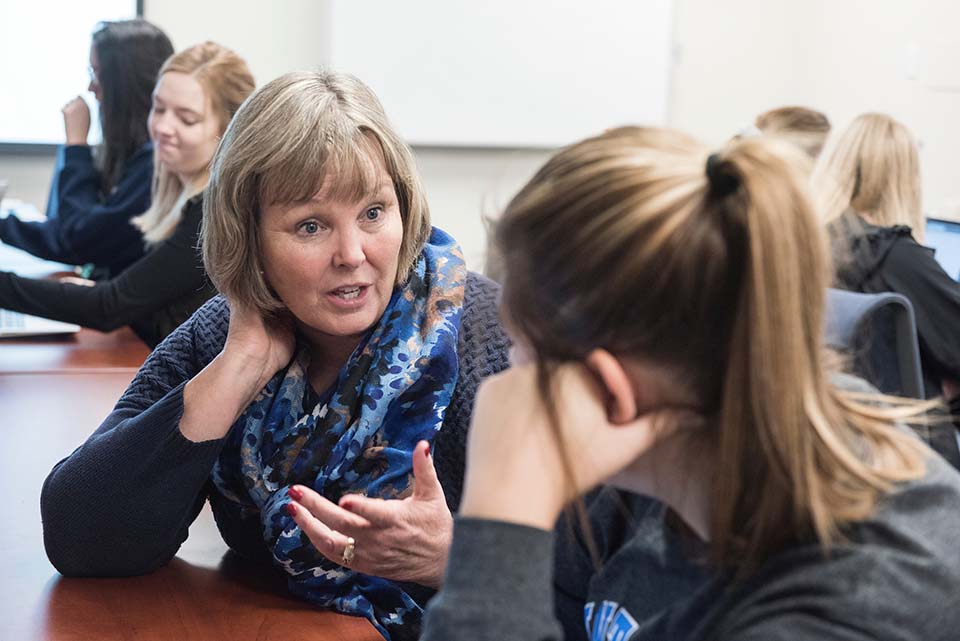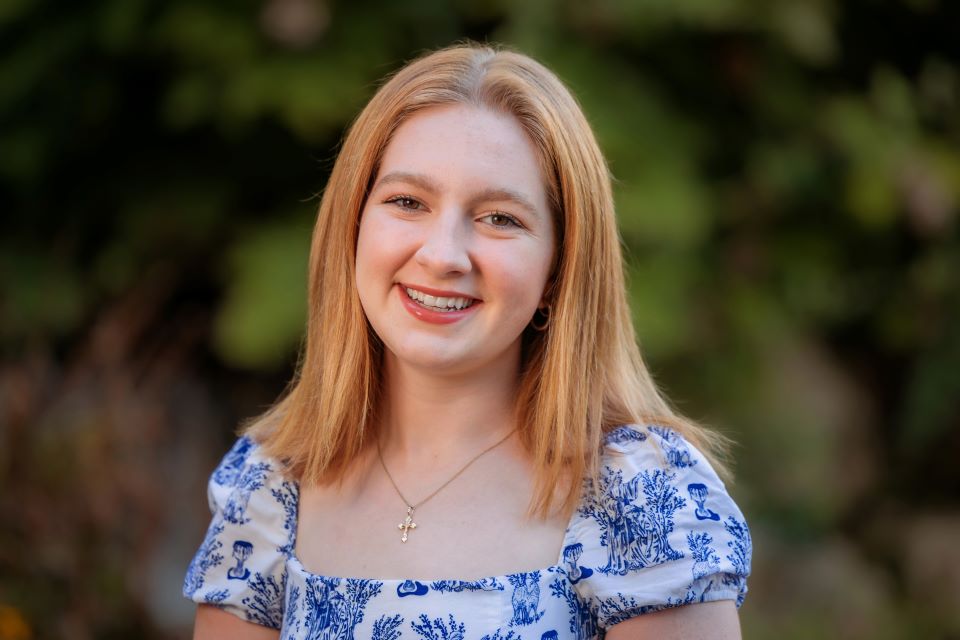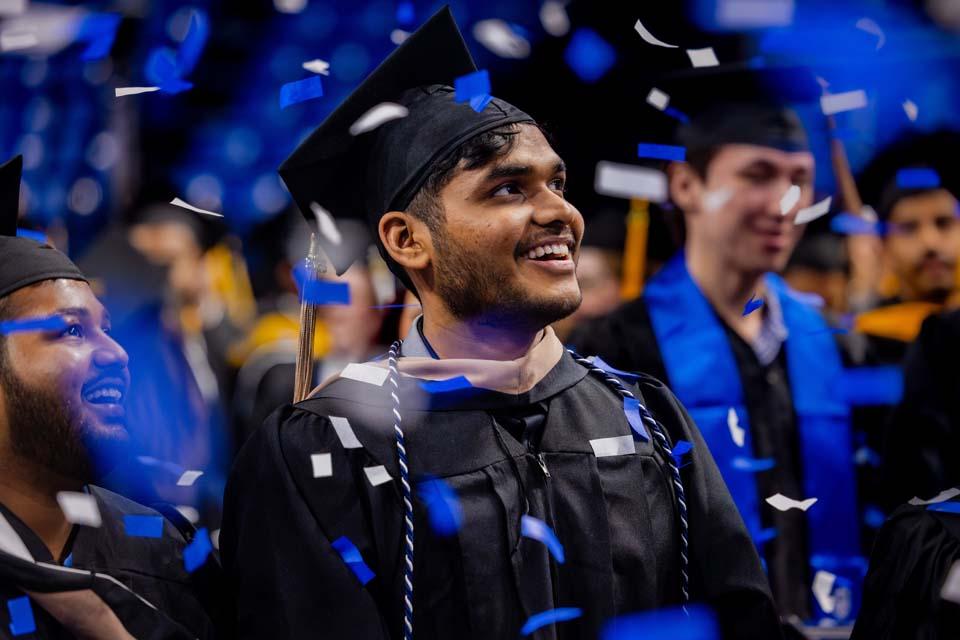At the Dentist’s Office, Practitioners are More Prepared to Care for All Patients
09/30/2024
SLU Pediatric Dentistry Residency Program Leads in Disability-Focused Oral Health Care
The dentist’s office is becoming a more inclusive place, thanks to better training for those who care for children with disabilities.
The Pediatric Dentistry Residency Program at Saint Louis University’s Center for Advanced Dental Education (CADE) leads in educating future pediatric dentists to treat patients with disabilities and complex medical needs.
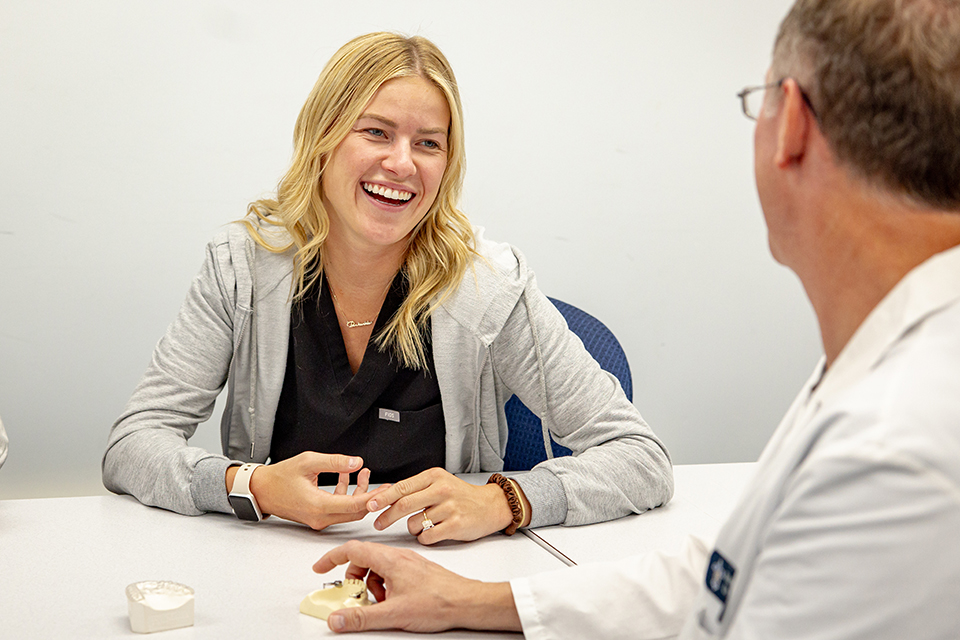
Daniel C. Stoeckel, DDS, right, works with a resident during a class in Saint Louis University's Center for Advanced Dental Education on July 11, 2024. Photo by Sarah Conroy.
According to the National Council on Disability, these patients are at higher risk for poor oral health and face multiple barriers to accessing care, including a shortage of appropriately trained professionals. While at the dentist’s office, children with autism, for example, may struggle with sensory overload during the unfamiliar sensations experienced at a teeth cleaning. A patient who uses a wheelchair may have difficulty accessing a dentist’s chair. Someone with a blood disorder may worry that a dentist isn’t trained to provide care in a way that is safe for their condition.
The Commission on Dental Accreditation (CODA) approved standards in 2019, requiring all U.S. dental schools to train students in assessing and managing patients with disabilities and complex medical needs in their graduation requirements.
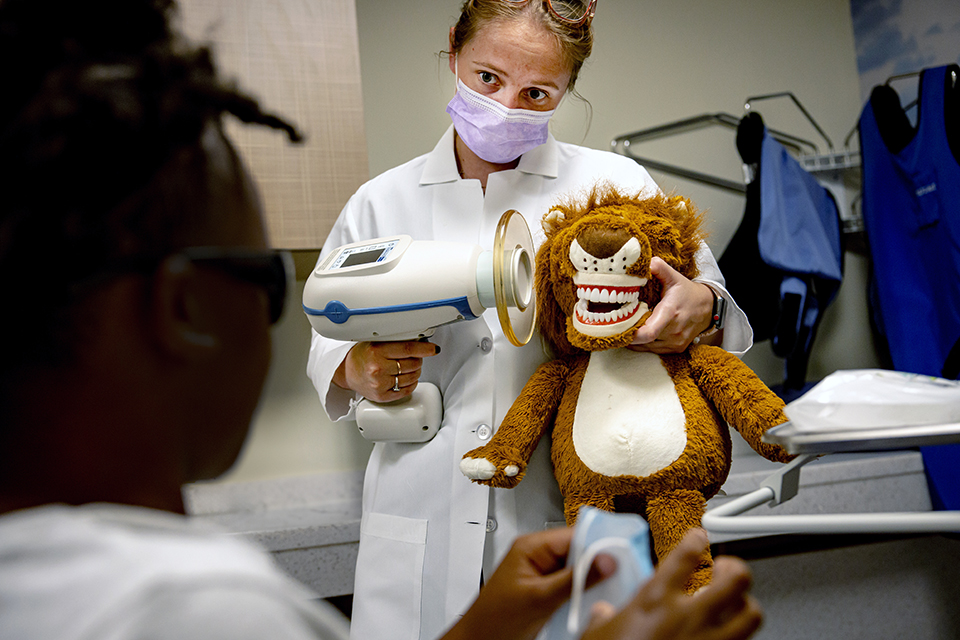
Resident Katelyn Glaenzer models a dental exam for a pediatric patient at Saint Louis University's Center for Advanced Dental Education on July 11, 2024. Photo by Sarah Conroy.
Providing residents with the required clinical training has been a strength of SLU's program since it started in 2017, said Dan Stoeckel, DDS, pediatric dentistry graduate program director at SLU’s CADE.
"The variety of patients we see at SLU prepares our residents to be confident and skilled at working with all patients," said Stoeckel, who also directs pediatric dentistry at SSM Health Cardinal Glennon Children’s Hospital.
CODA fully accredits SLU’s program, and it is the only pediatric dentistry residency program in eastern Missouri or southern Illinois. Residents admitted to the program serve children and adolescent patients with disabilities and complex medical needs in a clinical setting at CADE and the operating rooms and emergency room at SSM Health Cardinal Glennon Children’s Hospital.
"Upon completing the program, our residents are equipped with the clinical experience to tackle the oral health and psychosocial needs of vulnerable populations, ranging from those with blood disorders and cancer patients to those who have autism and Down syndrome,” said Avanija Reddy, DMD, the associate program director at SLU's Cade. "Dental students and dentists specializing in pediatric dentistry seek this experience."
Residents at SLU learn to use non-pharmacological behavior management techniques, such as modeling, nitrous oxide, and conscious sedation, at the SLU clinic. When necessary, the residents perform dental care under general anesthesia at SSM Health Cardinal Glennon Children’s Hospital. They also learn advanced diagnostic and surgical procedures, oral pathology, child-related pharmacology, radiology, child development, and oral or facial trauma management.
Physicians at the Danis Pediatric Center at SSM Health Cardinal Glennon Children’s Hospital directly refer low-income patients from birth to age 12 years old to the pediatric dental clinic for regular cleanings and checkups. The clinic will accept patients with disabilities and complex medical needs referred by Cardinal Glennon up to age 21. The dental clinic is one of the few in the St. Louis Metropolitan area that accept Medicaid.
Latest Newslink
- Kathryn Mitchell Pierce, Ph.D.: 1955-2025Kathryn Mitchell Pierce, Ph.D., associate professor of educational studies, died Wednesday, Dec. 10, 2025. She was 70 years old. Pierce joined Saint Louis University in 2015 as an assistant professor in the School of Education. Initially a literacy specialist in the undergraduate program, she eventually taught and mentored across all levels at the School of Education. She became an associate professor in 2022.
- Saint Louis University Student Speaks About Leadership and Disability at Ignatian Family Teach-In for JusticeSaint Louis University senior Grace LoPiccolo shared her personal leadership journey at the 2025 Ignatian Family Teach-In for Justice. The event, held annually in Washington, D.C., is the nation’s largest Catholic social justice advocacy day.
- SLU Research Shows Surge in Alcohol-Related Liver Disease Driving ‘Deaths of Despair’Researchers at Saint Louis University School of Medicine say deaths from alcohol-related liver disease have surged in recent years, and the increase is hitting people without a college degree the hardest. While nearly every demographic group is seeing higher death rates—including those with college degrees—the gap between economically disadvantaged groups and more affluent ones is growing, according to new research.
- Saint Louis University Joins Multi-Disciplinary Research Team to Enhance Stress Resilience in SorghumSaint Louis University is part of a multi-disciplinary team, led by the Donald Danforth Plant Science Center, to deepen the understanding of sorghum, a versatile bioenergy crop, and its response to environmental challenges.The U.S. Department of Energy (DOE) Biological and Environmental Research (BER) program supports the three-year $2.5 million project for Genomics-Enabled Understanding and Advancing Knowledge on Plant Gene Function. Saint Louis University will receive $437,039 for its portion of the study.
- SLU Graduates Celebrated at Midyear CommencementSaint Louis University celebrated its Midyear Commencement on Saturday, Dec. 13, inside Chaifetz Arena. More than 1,900 guests watched as 600-plus SLU students walked across the stage and left as graduates.
- Why Do Raccoons Cross the Road? SLU, St. Louis Zoo Research Shows They Don'tA new study led by researchers from Saint Louis University, the Saint Louis Zoo, and partner organizations set out to understand how raccoons use space in one of the nation's largest urban parks.








